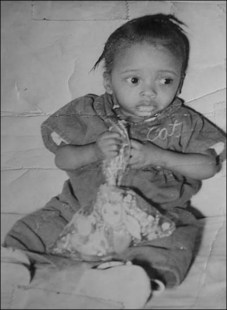| WHAT TO TELL YOUR FRIENDS AND FAMILY IN GENERAL | ||
|---|---|---|
 | Chapter 3 HOW TO TALK WITH OTHERS |  |
From the time your child is diagnosed, you should be honest with close family and friends about your child’s DSD. It’s hard to talk about these things, especially at first when you have just learned about your child’s diagnosis. Discussing sex anatomy brings up the idea of sexual relations in people’s minds, and talking about sex makes many people uncomfortable. Even though it may be awkward or painful at first to explain your child’s DSD to your close friends and family, parents of other children with DSD tell us that it becomes a little easier each time. Starting with the people you trust the most will help.
When you explain your child’s DSD, you may sometimes be met with family members and friends who look shocked and say things like, “I don’t understand. Is your child a boy or a girl?” To this you may say, “sometimes babies are born with a body type that is not either the average male or female. This is a variation that happens about one in every 1500 births. In our daughter Sue’s case, we figured out with our doctors that Sue should be raised as a girl since most children with Sue’s condition tend to follow along with that gender.” Your family member may then ask, “What if Sue turns out not to be a girl? What if she decides she is a boy?” You may explain to your family member that there is a small chance that any child, even a child without a DSD, will change gender assignment, but it is pretty rare. You may add that, in the unlikely event the assigned gender is not the one that your child feels comfortable with, you will help your child make the transition to the gender she feels inside. You may add that you love Sue just as she is, and that you hope they will feel the same way. You may talk about what else makes her special in your life—that she has her grandmother’s eyes, a wonderful laugh, her obvious love of her brothers and sisters.

In this way, you are explaining to others that, though your child may be different from the average, she or he is as unique and lovable as any other child. If your child has health problems (as some children with DSD do), explain those. Then ask your friend or family member to support you in raising this child in a loving and accepting way. You may tell the other person that the DSD has caused you some stress and worry, including worry that others will not accept your child. You may tell him or her it will help you, as well as your child, if loved ones treat you both with acceptance and love.
By honestly telling your friends and family about your child’s DSD, you begin to “normalize” the issue so that it’s not a horrible family secret or a tragic mystery. When your child is old enough to begin to understand the information about his DSD, chances are he will have heard from you about the DSD since he was born. Your child will also know he can talk to certain other loved ones about having a DSD, since you will have paved the way for open talk.
 |
© Accord Alliance a project of the Tides Center |
accordalliance.org |